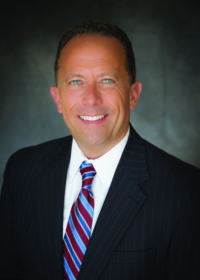
By Jon Kaupla, President/Executive Director of the Wisconsin School of Business Center for Professional & Executive Development
As businesses face increasingly complex challenges, the qualities leaders need to succeed continue to evolve. During a recent webinar on leadership development, I had the opportunity to moderate a discussion with Dr. Alan Kaplan, President and CEO of UW Health; Dennis Armstrong, former Chief Human Resources Officer at Blain’s Farm & Fleet; and Pam Rushing, President and Chief Underwriting Officer at Church Mutual Insurance Company.
Their candid perspectives revealed what it will take to lead effectively next year and beyond.
Critical Skills Leaders Need
Dr. Kaplan pointed out that adaptability and innovation are more important than ever. Leaders must juggle pressing issues while staying focused on what truly matters. “The stakes are higher, and today’s environment is less forgiving,” he explained.
Leaders also need to build trust through genuine relationships and clear communication. He stressed that modern executives must be ready to adapt to changing roles, shifting between growth, turnaround, and operational management as needed.
Pam emphasized the complexity of communication in a hybrid work environment. “Active listening and being present during virtual meetings are essential,” she said. “Without face-to-face interactions, it’s easy to miss cues that help build strong relationships.”
Preparing Leaders for the AI Era
With artificial intelligence (AI) reshaping businesses, many organizations are scrambling to upskill their leaders. Pam shared how Church Mutual hosted an “InnoJam,” where leaders explored AI-driven solutions to real business challenges.
“We had to help our leaders imagine what AI could do,” she said. Structured learning and hands-on problem-solving helped make AI more accessible and practical.
Addressing Leadership Gaps Through Reskilling and Upskilling
Dennis explained how Blain’s Farm & Fleet built a leadership pipeline to address the looming retirement wave among baby boomers. They developed tailored programs to prepare employees for key roles like regional and store managers.
“We couldn’t afford to wait until a role opened up,” he shared. “We needed a bench of ready-to-go leaders to step in when needed.”
Dr. Kaplan also talked about UW Health’s proactive approach to workforce development. Faced with health care staffing shortages, the organization launched apprenticeship programs and embraced AI-driven tools for physicians.
“We’re not just recruiting—we’re building our own workforce from the ground up,” he explained.
Leading with Purpose and Profitability
Pam highlighted the importance of balancing mission-driven work with business goals at Church Mutual. “We’re passionate about protecting the greater good, but we still have a business to run,” she said. Transparent communication helps leaders understand difficult decisions while staying true to the company’s mission.
Dr. Kaplan reflected on his own experience balancing financial realities with a mission-driven mindset. “I realized I was talking about market share and finances in a way that didn’t resonate with our employees,” he admitted. “I had to adjust my language to reflect our mission more clearly.”
Lessons from Leadership Transitions
Dennis, Pam, and Dr. Kaplan shared personal stories about navigating leadership transitions. Dennis discussed how he developed emerging leaders by giving them high-stakes projects, coaching them through challenges, and celebrating their successes.
Pam recalled the shift from managing individual contributors to leading leaders—a significant adjustment that required a new mindset.
Dr. Kaplan described his transition from a single-hospital chief medical officer to leading a large health care system. “I spent hours on the road, visiting every facility, listening, and learning,” he shared. “That experience taught me the power of showing up and being genuinely curious.”
Looking Ahead: Essential Competencies for Future Leaders
When asked about the top leadership skills they see as essential, the panelists highlighted:
- Adaptability and Focus: Staying agile while blocking out distractions.
- Curiosity and Reflection: Always learning and re-evaluating strategies.
- Agility and Engagement: Responding quickly to change while engaging teams.
- Resilience and Vulnerability: Owning mistakes and learning from them.
Leadership in the next year and well into the future will require a blend of timeless human qualities—empathy, integrity, and adaptability—along with tech-savviness and strategic foresight. By embracing these skills, leaders can create dynamic, resilient organizations ready for whatever the future holds.

Jon Kaupla is the executive director of the Wisconsin School of Business Center for Professional and Executive Development. He has over 18 years of human resources experience with organizations ranging from non-profits to Fortune 500 companies. Jon has led human resources strategy in the healthcare, financial services, marketing, and retail industries. Jon has a Bachelor of Science in psychology and social work from Florida State University and a Master of Arts in education from Alverno College.